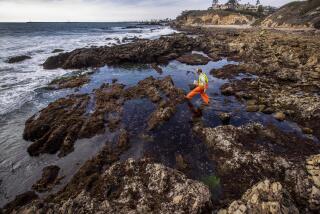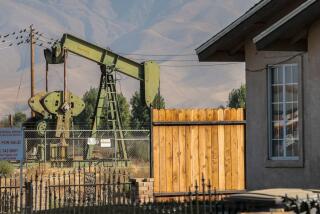The Spill Next Time (Cont.)
- Share via
Smog-free and potentially cheap, nuclear power would be far more prevalent if the public really believed that the industry was capable of controlling any potential accident. The fact that nuclear power does not enjoy that confidence is not an economic disaster since there are alternative forms of power. But the nation does not yet have a substitute for the petroleum needed to run much of its economic machine. For now, we are stuck with oil. Therefore, as the Exxon Valdez and the American Trader have demonstrated, we must do a better job of handling the millions of barrels of petroleum products the nation guzzles daily--from the moment the stuff comes out of the ground, or the ocean floor, to the point at which the last vapors flow from the exhaust pipe.
It’s true that an oil spill does not carry the potential for mass human destruction that people fear--whether rationally or not--from a nuclear accident. Long-term environmental damage is bad enough, though. And fortunately, Americans have the technical skill to develop safeguards against major oil spills and adequate cleanup programs. But the people and their political leaders must demand that the job be done, and agree to pay the necessary cost.
The Alaskan spill conceivably might have been prevented if budget cuts had not reduced the Coast Guard’s ability to track and control shipping traffic, according to Congress’ General Accounting Office. Damage to Huntington Beach might have been limited if the Environmental Protection Agency hadn’t been forced to suspend research and development in oil-spill prevention and cleanup because of lack of money.
If offshore moorings are a problem, safer alternatives must be found. Double tanker skins will prevent or minimize spills. And much more work needs to be done in developing booms that truly contain the oil in the immediate vicinity of a spill.
Finally, accidents don’t just happen to ships. Offshore rigs, tanker trucks, refineries and every other facility pose a risk. Petroleum industry workers everywhere must conduct themselves as if an accident could happen at any place at any moment. Because it could.
More to Read
Sign up for Essential California
The most important California stories and recommendations in your inbox every morning.
You may occasionally receive promotional content from the Los Angeles Times.













